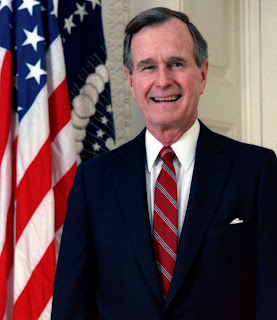
George Herbert Walker Bush was born on
In his early life, he enrolled Greenwich Country Day School in Greenwich. Later, in 1936, he attended Phillips Academy in Andover, Massachusetts. At this school he excellently used his talent of leadership by being a president of a senior class secretary of the student council, president of the community fund-raising group, a member of the editorial board of the school newspaper, and captain of both the varsity baseball and soccer teams.
During the World War II, he served as naval aviator at the age of 18, being a youngest naval aviator in World War II, photographic officer, and air force. He fought the war in Bonin Islands and Chichijima against Japanese, once close to be held captive. In 1944, he went to Philippines and participated in operations. He received the Distinguished Flying Cross, three Air Medals, and the Presidential Unit Citation awarded to San Jacinto by flying 58 combat missions.]
Bush had been accepted to Yale University prior to his enlistment in the military. There, graduated one and half year earlier than others.
After Bush graduated from courage, he moved to West Texas and started a oil company, named it Bush-Overby Oil Development company. This greatly succeeded, which made him a millionaire.



